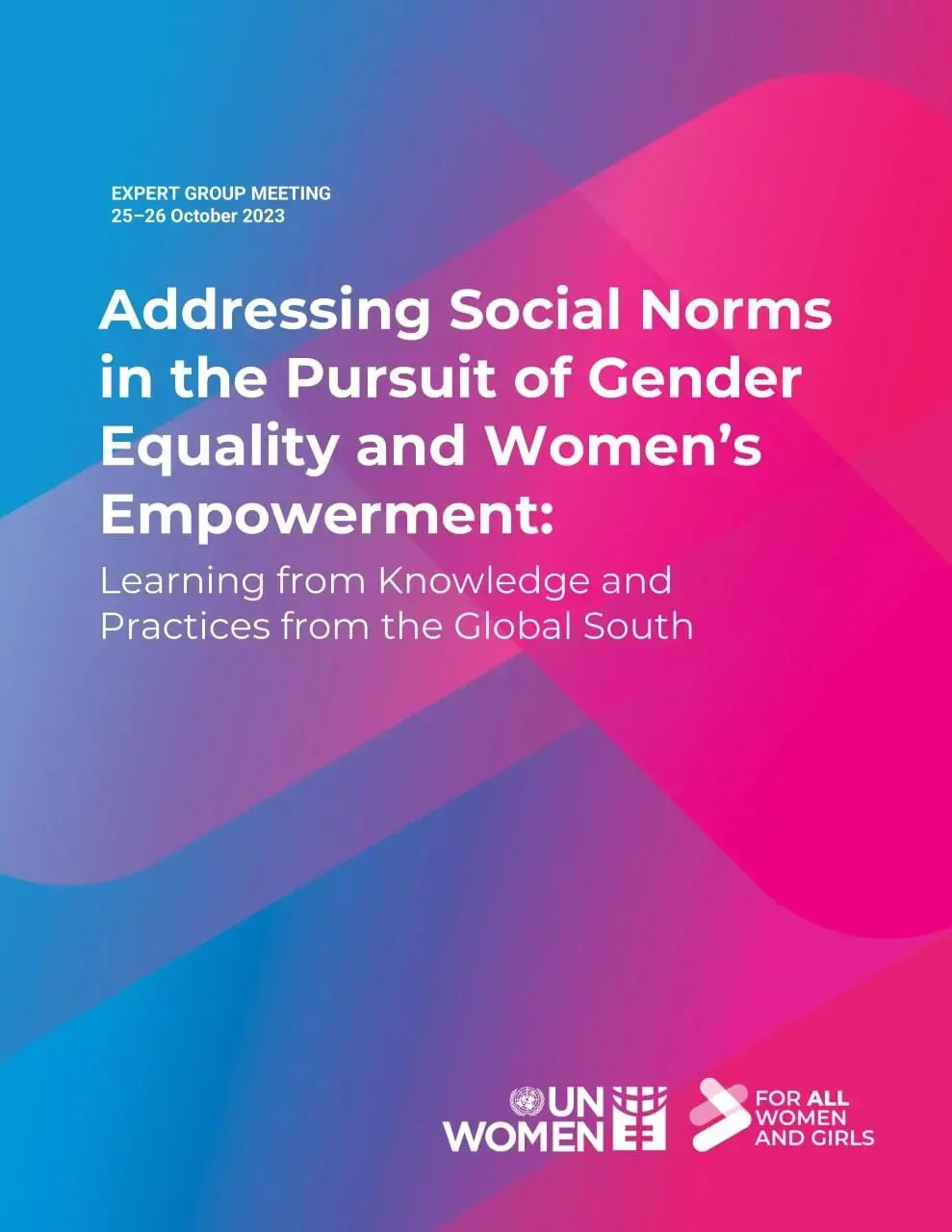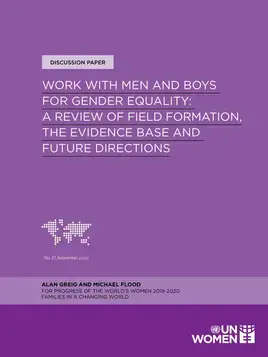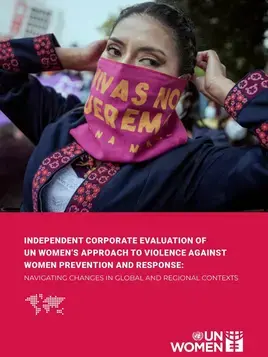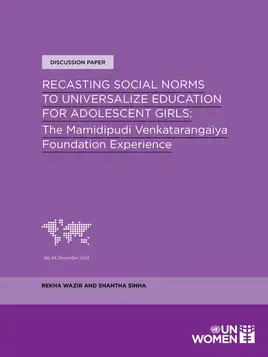
Addressing social norms in the pursuit of gender equality and women’s empowerment: Learning from knowledge and practices from the Global South
This report summarizes proceedings of and key takeaways from a Global South–led expert group meeting convened by UN Women to inform its strategic approach to addressing discriminatory social norms in the pursuit of gender equality and women’s empowerment. The report includes findings and recommendations emerging from research on social norms, including original research commissioned by UN Women on “how change happens” in Brazil, Egypt, Fiji, India, and the Democratic Republic of Congo.
Experts from across the world deliberated on four key questions:
- How are the social institutions of the state, market, community, and family implicated in social norms on gender, and what kinds of strategies are required for changing gender norms in institutions?
- What strategies and approaches have been applied for working with those privileged or marginalized by these norms? How have these strategies helped change social norms?
- What is the relationship between empowerment, collective action, and social norms change?
- How are norms being measured and how is evidence produced by such approaches influencing policy? What are alternative ways of thinking about the measurement of social norms change?
The expert group recommended that UN Women develop an institutional, intersectional, feminist, and decolonial approach to social norms. Discussions among the group, as well as findings from UN Women’s commissioned research, point to three key pathways for inclusion in UN Women’s framework on addressing discriminatory social norms:
- Developing counter-narratives and building consensus.
- Changing the material realities of women and girls.
- Movement building, collective actions, and coalition building.


